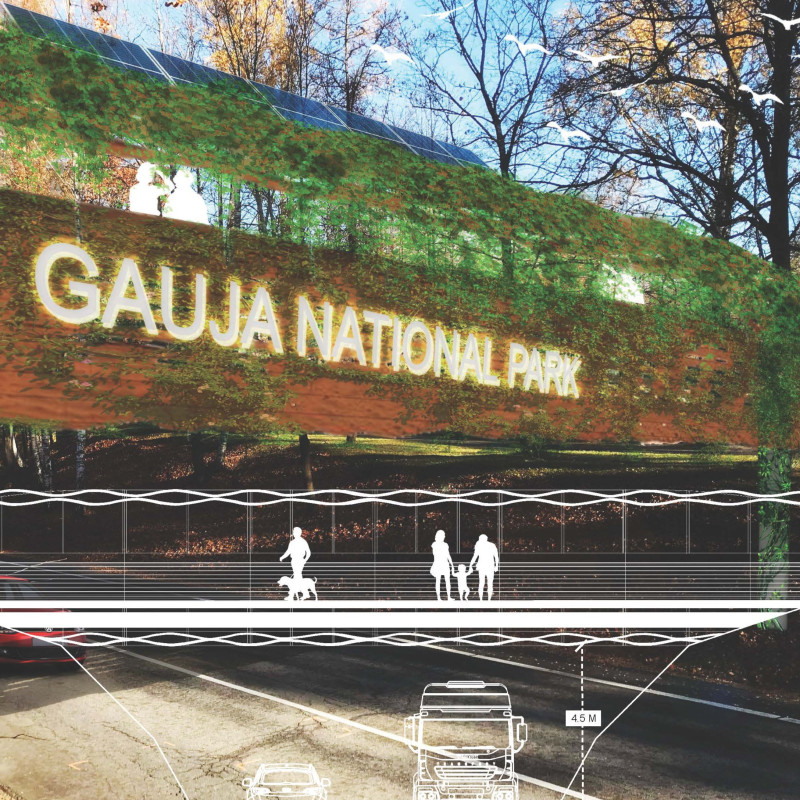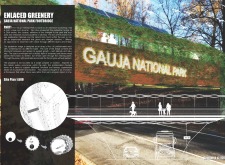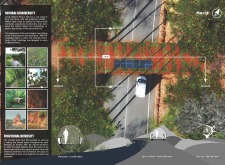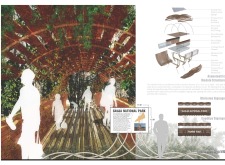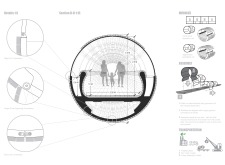5 key facts about this project
The Gauja National Park Footbridge is a thoughtfully designed structure that enhances the natural beauty of the park while providing a functional crossing for pedestrians. Located in the picturesque setting of Gauja National Park, the bridge connects various trails, allowing visitors to explore the diverse landscapes. The design concept revolves around creating a bridge that reflects the ecological features of the area, aiming to strengthen the relationship between people and the environment.
Modular Design
The structure consists of prefabricated modular units, which offers flexibility in its use. Each module is carefully positioned to serve multiple purposes, such as resting areas or observation points. This modular approach not only supports easy installation but also allows the bridge to adapt to the changing needs of the park and its visitors.
Structural Framework
At the heart of the bridge is a robust framework that ensures its stability while also encouraging plant growth in the surrounding area. The design is intended to promote natural vegetation, allowing greenery to flourish around and through the structure. By integrating light and allowing vegetation to intertwine with the framework, the bridge fosters a connection between built and natural elements, creating a cohesive experience for visitors.
Material Selection
The materials chosen for the footbridge prioritize sustainability and environmental compatibility. The outer layer features a double arrangement of reclaimed wood and thermo-treated wood panels. These materials not only protect the structure but also allow sunlight to filter through, creating a warm environment. The choice of materials also reinforces the bridge's connection to the surrounding nature, minimizing its impact on the ecosystem.
The design includes intricately woven pores in the outer layers, inviting light and local plants to mingle with the structure. This detail enhances the visual connection with the environment and emphasizes the project’s dedication to supporting biodiversity in Gauja National Park.


